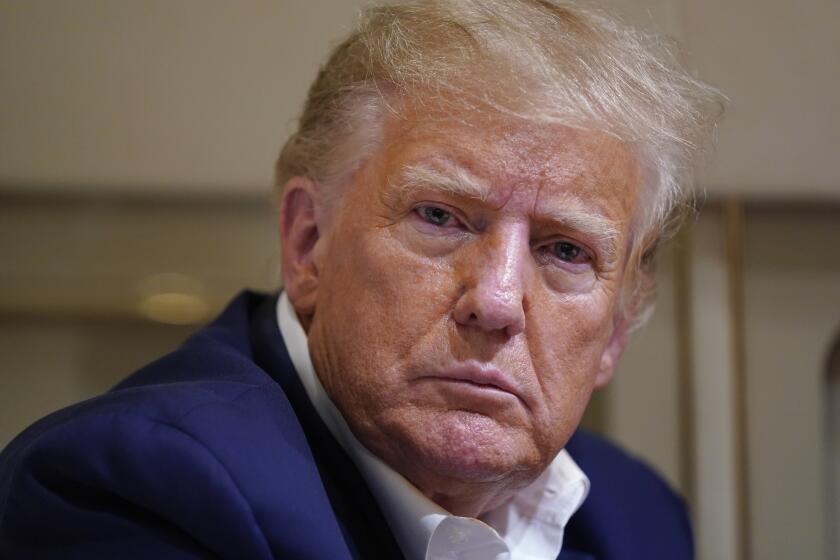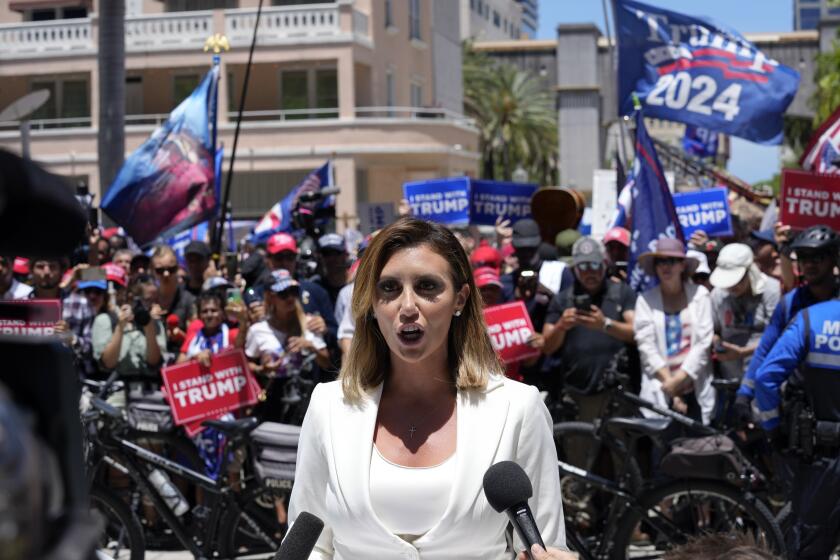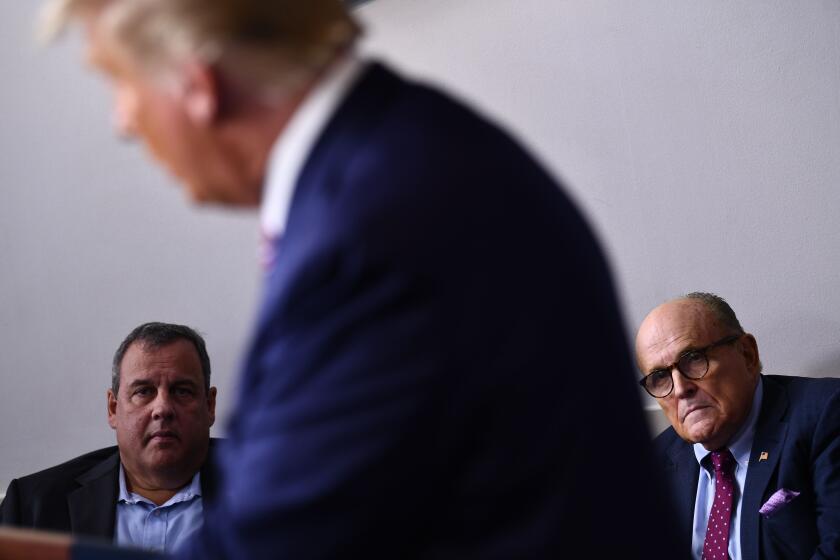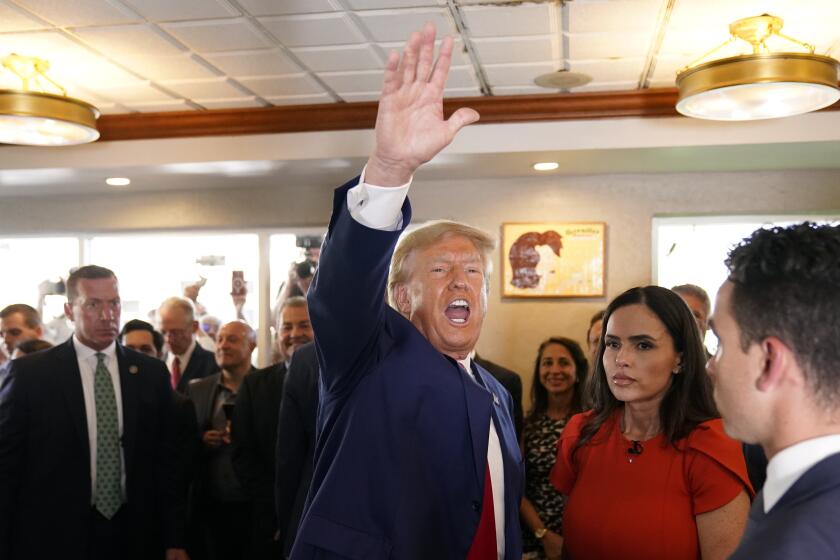Column: Five ways Judge Aileen Cannon could protect Trump from the classified documents prosecution

When federal officials decided to bring the most important prosecution in the Department of Justice’s history in Florida rather than Washington, D.C., they knew they were taking some risks.
One of these is a generally less sophisticated and favorable set of judges, the most worrisome by far being Aileen Cannon.
Cannon is the Trump appointee who allowed the former president to temporarily derail the classified records investigation with a civil action challenging the search of his Mar-a-Lago estate. Her rulings on that episode were hopelessly mangled and result-oriented, drawing two harsh reversals by the conservative U.S. 11th Circuit Court of Appeals, which finally put an end to the misadventure.
Former President Trump was indicted on charges related to classified documents found at his Florida estate. Special counsel Jack Smith’s case is historic.
Sure enough, through an apparently random process, the nightmare scenario appears to have become a reality: Cannon is the putative presiding judge in United States vs. Trump.
Some have already called on Cannon to recuse herself from the case based on her apparent past partiality. Recusal of judges is governed by a number of rules, starting with a provision that instructs a judge to step aside from “any proceeding in which [her] impartiality might reasonably be questioned.” That directive is meant to apply even if Cannon sincerely believes she is up to the job.
It would arguably make sense for Cannon to recuse herself even from her personal vantage point: She is in a can’t-win situation in which her already abysmal professional reputation is likely only to suffer more. But based on her record in the previous case of doubling down even after humiliating reversals, it’s hard to have confidence that she will willingly step aside.
If Cannon does remain on the case, there are ways — both formal and informal — for the 11th Circuit Court to remove her from the case. Unless and until that happens, her presence poses concrete risks of warping the workings of the justice system when the country urgently needs it to be above reproach.
Here are five areas in which Cannon, more than almost any other judge in the country, could cause terrible mischief for prosecutors.
- Timing: Special counsel Jack Smith emphasized the importance of a speedy trial in his short remarks last week, and under normal circumstances this case could be tried by next summer. The most worrisome prospect of Cannon’s assignment is that she will indulge Trump’s familiar delaying tactics and allow the trial to be put off until after the 2024 election. That would be a grave disservice to voters, who deserve to know whether Trump is guilty as charged when they cast their ballots.
- Jury selection: There are no doubt potential jurors in the Southern District of Florida who would never vote to convict Trump. The court makes the ultimate determination as to whether a juror is able to put her preconceptions aside and apply the law. Given her demonstrated sympathies for the former president, Cannon could end up seating ardent Trump supporters whom other judges would strike, leading to a hung jury.
- Evidentiary rulings: The judge could make any number of evidentiary rulings that would make conviction a steeper climb. The most important would involve former Trump attorney Evan Corcoran’s notes and accounts of statements by both the former president and his alleged co-conspirator, Walt Nauta. Corcoran’s testimony as to the defendants’ statements should be admissible under the federal rules of evidence, but Cannon could limit or prevent their use.
- Jury instructions: Judges have considerable leeway in guiding the jury’s deliberations. The last stage of a trial before closing arguments is an instruction conference in which the judge decides high-stakes wordsmithing disputes between the parties. And as with evidentiary questions, an erroneous ruling that leads to acquittal can’t be revisited because double jeopardy protections would prevent a retrial.
- Trump’s public comments: The day after the indictment was unsealed, Trump proclaimed that the “ridiculous and baseless indictment of me by the Biden administration’s weaponized Department of Injustice will go down as among the most horrific abuses of power in the history of our country.” Online forums have already seen a subsequent spike in violent rhetoric. In the criminal case against Trump in New York, the presiding judge immediately warned the defendant to watch his public remarks. If Cannon declines to curb Trump’s vitriol, he could prejudice the jury pool, endanger government and court personnel, and inject chaos into a trial that we urgently need to be dignified and orderly.
There are nearly 700 federal district court judges in the country. Of all of them, Cannon is the first whose fairness might reasonably be questioned. And of all cases in the federal court system, none calls for a judge and a process that inspire public confidence more than this one. It’s of paramount importance that this case be assigned to another judge — any other judge.
Harry Litman is the host of the “Talking Feds” podcast. @harrylitman
More to Read
A cure for the common opinion
Get thought-provoking perspectives with our weekly newsletter.
You may occasionally receive promotional content from the Los Angeles Times.


















